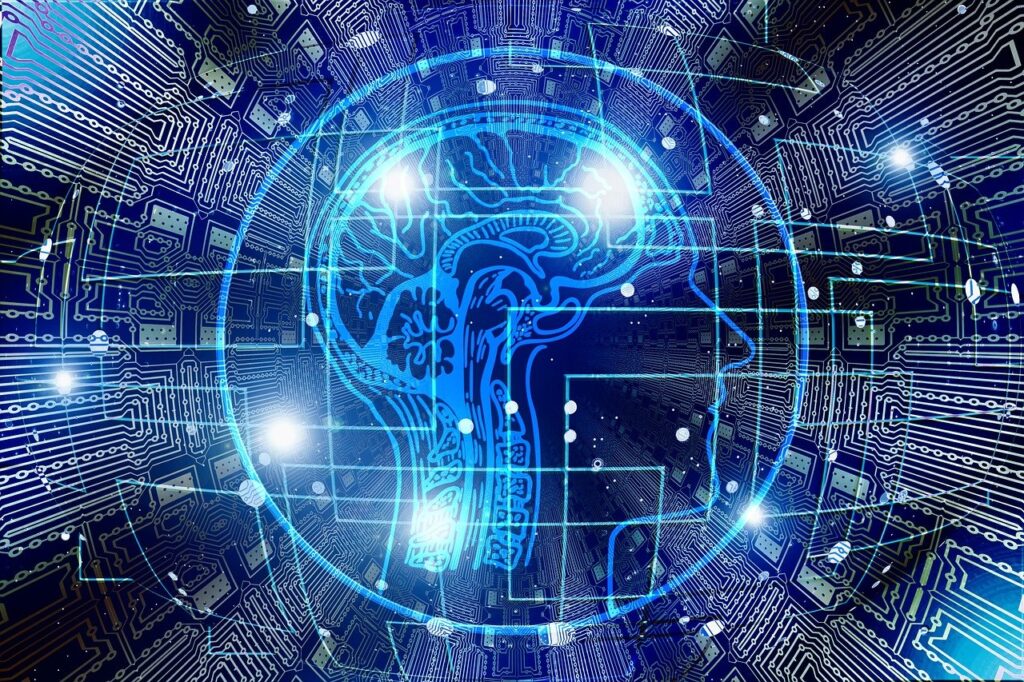
The rise of artificial intelligence (AI) in Malaysia is disrupting traditional models of industry, creating a new wave of opportunity for businesses and individuals alike. Its development has been a major focus of the Malaysian government, both as a means of creating new jobs and advancing the nation’s economy. As a result, AI technology is now being used in many sectors, including healthcare, logistics, and finance. This has led to the emergence of numerous trends and opportunities that are transforming the Malaysian economy. In this article, we will explore the trends and opportunities that are being created by the rise of AI in Malaysia, and how businesses and individuals can take advantage of them.
What is artificial intelligence (AI)?
Artificial intelligence is a term used to describe the ability of machines to complete tasks that would normally require human intelligence. In recent years, AI has been used to automate many processes that we would normally associate with humans, such as customer service or business administration. This has caused many people to associate AI with job loss, but in reality, AI is likely to create as many jobs as it replaces. In fact, many experts believe that AI will lead to greater job satisfaction as workers will be able to focus on creative tasks rather than repetitive and menial tasks. AI uses computer systems to simulate human cognitive functions, such as learning and solving problems, to achieve human-like behaviour. AI can be broken down into three different subcategories: strong AI, general AI, and weak AI. Strong AI is the term used to describe a computer system that has human-like intelligence and the ability to think creatively and autonomously. General AI is the term used to describe a computer system that has human-like intelligence and the ability to think creatively and autonomously across multiple disciplines. Weak AI is the term used to describe a computer system that is designed to complete a specific task but has little or no ability to think creatively or autonomously.
Malaysian government’s investment in AI
The Malaysian government has invested significantly in the development of AI technology in recent years. The Malaysian government has allocated RM 100 million (US $24.9 million) to its digital economy and AI initiatives in recent budgets. Additionally, an augmented reality (AR) and artificial intelligence (AI) start-up has raised $54 million, with the investment fund of the Malaysian government jumping on board. Furthermore, the government launched the Malaysia Cybersecurity Strategy (MCSS) 2020-2024 with an allocation of US$434 million to step up its AI and cybersecurity initiatives. Additionally, a US$1 billion, five-year project has also been set up to build a campus for research into AI and other emerging technologies. This has been done in order to create a new wave of opportunity that will drive the country’s economy and create new jobs for the nation’s citizens. As a result, AI is now being used in many sectors, including healthcare, logistics, and finance. This is being done for two main reasons: to maximize productivity and to minimize costs. When used correctly, AI has the potential to increase productivity on a mass scale and thus maximize profits. For example, it can be used to analyze large volumes of data quickly and accurately, including customer data and product data. This enables companies to make better informed decisions, resulting in higher profits. It can also be used to minimize costs by automating processes that would otherwise require human labour, such as data processing and customer service. This enables companies to reduce their operational costs and increase their profits.
AI trends in Malaysia
– Data-driven AI: The rise of data-driven AI is creating new opportunities for businesses and individuals in Malaysia. Data-driven AI uses large amounts of data to teach machines to complete tasks and make decisions autonomously. This enables businesses to create more efficient and customized services, while individuals can use data to learn new skills and improve existing ones.
– Collaborative AI: The rise of collaborative AI is creating new opportunities for businesses in Malaysia. Collaborative AI is designed to be used alongside human workers to improve their productivity and enrich the experience of doing the job. For example, it can be used to recognize objects and images to assist engineers in product development, or to help human resources teams with recruitment.
– Cybersecurity: The rise of cybersecurity is creating new opportunities for businesses and individuals in Malaysia. Cybersecurity AI is designed to identify and prevent cybercrime and data breaches. By doing this, it also protects businesses from losing significant amounts of money and protects individuals from having their data stolen. This can be particularly useful for businesses in the financial sector that deal with sensitive customer data.
AI opportunities in Malaysia
– AI adoption rate: The adoption rate of AI in Malaysia is predicted to increase significantly over the next two years. As a result, this will create numerous opportunities for businesses and individuals. For example, businesses that have yet to implement AI technology will be able to make better decisions, while those that already use AI will be able to explore new ways of using it. Individuals too can take advantage of the increased adoption rate by learning new skills and improving existing ones.
– New industries: AI adoption will also create new industries in Malaysia that previously did not exist. This will enable businesses and individuals to explore new opportunities within the economy and create new job opportunities. For example, healthcare AI is expected to become a billion-dollar industry in Malaysia over the next few years, allowing new businesses to form that focus on healthcare AI.
AI’s impact on Malaysian businesses
– Increased productivity: The rise of AI in Malaysia will lead to increased productivity for businesses across the country. This will enable them to maximize profits and be more competitive in the marketplace, which will result in greater success.
– Reduced costs: The rise of AI in Malaysia will also lead to reduced costs for businesses across the country. This is likely to be particularly beneficial for small and medium-sized businesses that have limited resources. By implementing AI technology, they will be able to reduce their operational costs while improving their services.
– New markets: The rise of AI in Malaysia will also enable businesses to explore new markets. This is because many businesses that previously struggled to compete internationally due to their high operational costs will now be able to reduce them significantly. As a result, they will be able to explore new markets and grow their business.
AI’s impact on Malaysian citizens
– Better healthcare: The adoption of healthcare AI in Malaysia will lead to significant improvements in people’s health. This is because healthcare AI can be used to identify diseases and illnesses more quickly and accurately than human doctors can. It can also be used in the development of new drugs and the improvement of existing ones. This will enable people to be diagnosed and treated more quickly and effectively, while also reducing the risk of side effects.
– Better education: The adoption of education AI in Malaysia will lead to significant improvements in people’s education. This is because education AI can be used to create more personalized lesson plans that are tailored to individual students’ needs and skill levels. It can also be used to create new and advanced methods of teaching, such as virtual reality. This will enable people to learn new skills and improve existing ones quicker and more effectively, while also reducing the risk of stress and exhaustion that often comes with studying at a high level.
AI’s impact on Malaysian government
– Improved public services: The adoption of AI technology in the government of Malaysia will lead to significant improvements in the delivery of public services. This is because AI can be used to create more personalized and accurate assistance, allowing government workers to focus on complex tasks. It can also be used to create new methods of recording data, such as using voice recognition for data collection. This will enable government workers to deliver better services to the public, while also reducing the amount of time that is spent on menial tasks.
– More effective law enforcement: The adoption of AI technology in law enforcement in Malaysia will lead to significant improvements in the way criminals are identified and captured. This is because law enforcement AI can be used to create more accurate crime profiles, including predicting potential crimes. It can also be used to create new methods of criminal investigation, such as using virtual reality to explore crime scenes. This will enable law enforcement workers to capture criminals more quickly and accurately, while also reducing the risk of false arrests and wrongful convictions.
How businesses and individuals can take advantage of AI
There are three main ways that businesses and individuals can take advantage of AI technology:
– By implementing AI-driven systems: When it comes to implementing AI-driven systems, businesses will need to choose the type of AI that best suits their needs, such as healthcare AI or education AI. They will also need to decide where to implement it, such as the marketing department or the HR department.
– By training on AI-related skills: When it comes to training on AI-related skills, businesses and individuals can use online courses to learn how AI works and how to apply it to different industries.
– By investing in AI-related assets: Finally, when it comes to investing in AI-related assets, businesses will need to decide how much money they are willing to spend and what they want to buy. They can choose to purchase AI-driven computer systems or hire AI professionals to implement the technology in their business.
AI Challenges in Malaysia
Artificial Intelligence (AI) has become an integral part of our lives, from facial recognition to language translators to assistants like Siri and Alexa, AI is now powering many real-world applications. But with this advancement in technology also comes a set of challenges, particularly in Malaysia.
Studies have revealed that AI can have a strong overall impact – a 10 to 18 percent GDP uplift in Southeast Asia by 2030, equivalent to nearly $1 trillion. However, the success of AI in municipal services is subject to the rate of information technology literacy among the urban population. Additionally, increased transparency in AI, with the aim to inform legal or medical decision-making, will allow humans to understand why AI is arriving at certain conclusions. On the other hand, there are various definitions of AI, and its application in the built environment involves making intelligence machines and systems that can interact with humans.
Furthermore, with increased automation, AI can potentially create 6 million new jobs by 2030 in Malaysia and this future of work will create new needs, skills and mindsets for employees to adjust and adapt to. This is an opportunity for Malaysians to equip themselves with the necessary skills to leverage the power of AI and its various innovations.
Apart from that, there are also various challenges that come with the implementation of AI in Malaysian higher education. For example, AI-powered learning systems can be challenging to manage due to the complexity of the underlying systems. Furthermore, the lack of AI experts in Malaysia may lead to a lack of understanding of the implications and potential of AI, leading to inadequate implementation of AI-powered systems. The reliability, accuracy and security of AI-powered systems are also potential issues that may arise during implementation.
Overall, AI can be a powerful tool that can revolutionize the Malaysian higher education system. However, it is important to understand the potential implications and challenges that come with its implementation in order to ensure its successful adoption. With adequate planning and the right skill sets, AI can be leveraged for the betterment of the Malaysian higher education system.

